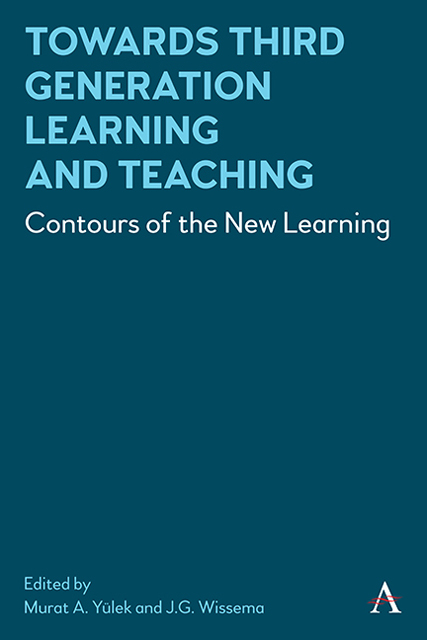Chapter 8 - Where Immersion, Experimentation, Gaming and Learning Meet—Learning in Virtual Realities
Published online by Cambridge University Press: 10 January 2023
Summary
Introduction
The acceleration of today’s technological and scientific evolution is unprecedented. Devices and the lure of the screen have not only become a fact of life; they drive scientific progress and the Internet revolution. The development of smart technologies has created a new paradigm for machine–human relationships in which the machine is not only becoming the repository, but also the curator and orchestrator of knowledge. Knowledge acquisition in itself no longer suffices to succeed and thrive in the world. Acquiring and applying knowledge in and through experience is becoming ever more important to tackle the challenges and uncertainties of our world.
The reality of experience in, and of the physical world, is increasingly moulded in digital interaction, enabled by high-end computers, graphics, smartphones and progress in machine learning and artificial intelligence. Add the evolution of VR and immersive technologies, it is clear that our experience of reality and relationship with the world is impacted profoundly. This has become most obvious in gaming. Reflecting on Third Generation Learning and Teaching, however, the uptake of VR and immersive technologies is rather sluggish and disparate, as education typically remains a late adopter of technologies.
Generation Z or Generation Zoomers (Gen Z or Generation Zoomers, born after the Millennials between 1990 and 2010) engage passionately in the fast-evolving new realities and make-belief worlds these technologies evoke. It is the world Generation Z grew up in and their successors Gen Alpha, born after 2010, have lived in since birth. The question begs whether the temptation of the screen obfuscates their experience of the world and understanding of what knowledge-acquisition in a digital world means, refers to or should be. What do Gen Z and Gen A learn today, and more precisely what should they learn today and how? We know that knowledge alone is no longer an asset in a world in which The Fourth Industrial Revolution, a term coined by Klaus Schwab, has shifted the paradigm of intelligence and knowledge. The importance of what we learn may be declining, the importance of how we learn and how to apply knowledge in and through experience is evermore critical to thrive.
- Type
- Chapter
- Information
- Towards Third Generation Learning and TeachingContours of the New Learning, pp. 125 - 138Publisher: Anthem PressPrint publication year: 2022



